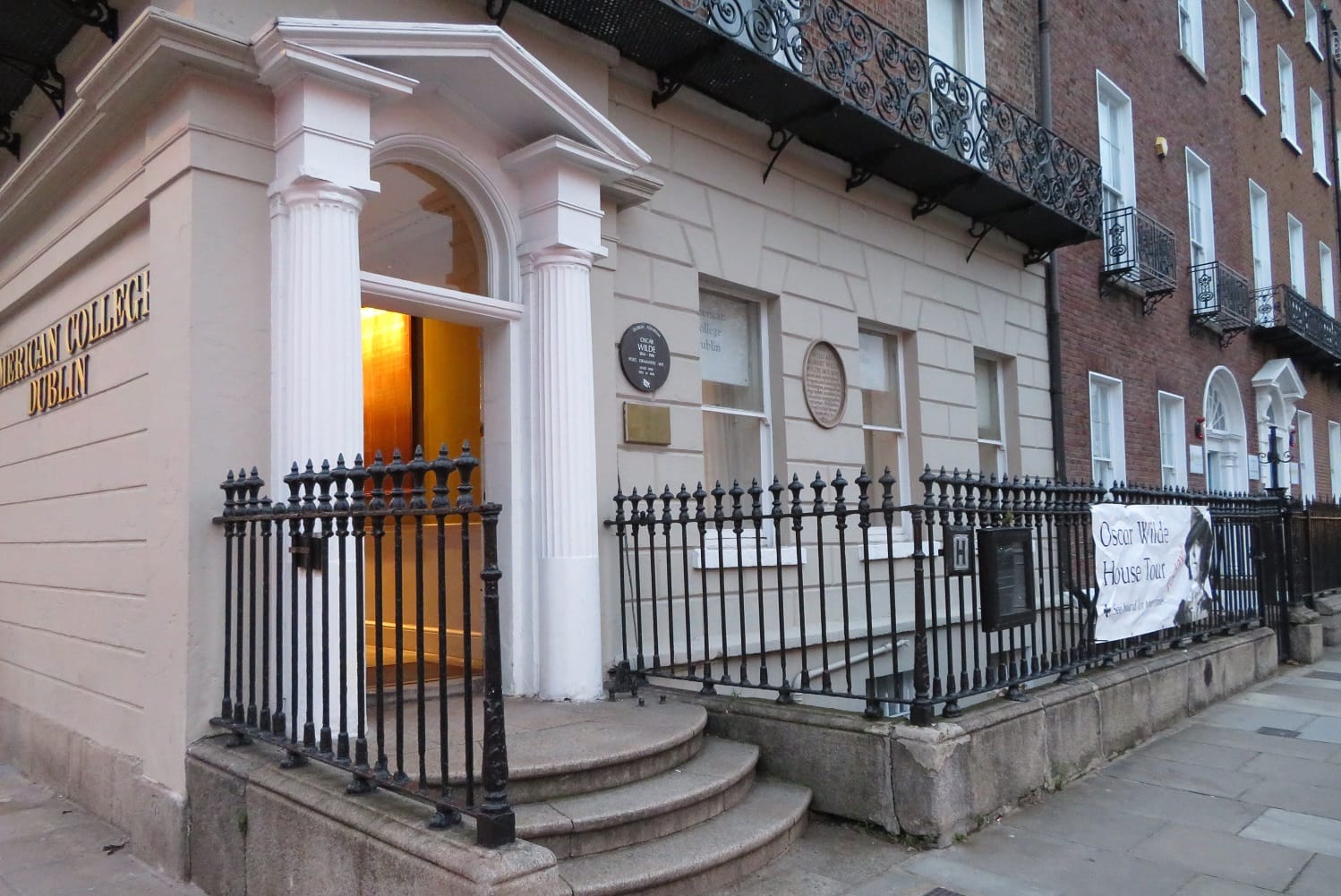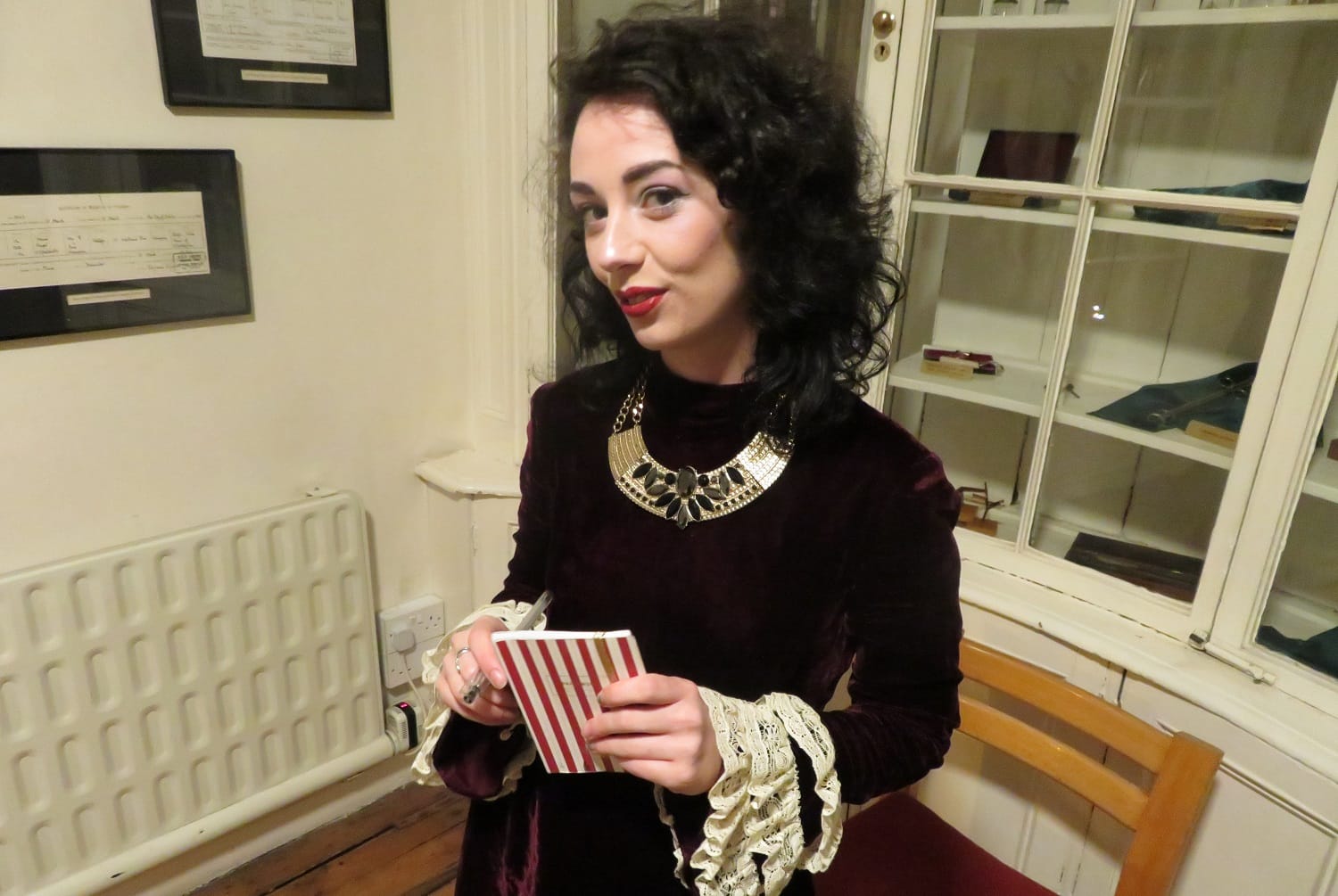What’s the best way to tell area residents about plans for a new asylum shelter nearby?
The government should tell communities directly about plans for new asylum shelters, some activists and politicians say.
The hope is to recreate the 19th-century salons hosted by Lady Jane Wilde, also known as Speranza. A recent Saturday was the first event.

At the end of a long oak table, Caoimhe Lavelle spins a hula hoop around her waist as she launches into her poem, “Lore”.
“It’s a strange talent I learned,” she says of the hula-hooping, laughing, later.
About 40 people are crammed into a dark dining room, dimly-lit by a crystal chandelier and candles.
Some sit at the table. Others crane their necks from the back of the room for a better look.
It’s Saturday night at 1 Merrion Square, the home of the American College Dublin, and the first in what organisers say may be a regular event, recreating the 19th-century salons hosted by Lady Jane Wilde.
Salons were “hugely important” for women, says Lavelle, later. “It was a special place for them to air their ideas as well as have a command of the intellectual space.”
Lavelle’s performance was followed by other poets and musicians, mostly acoustic.
Now owned and used by the college, the house at 1 Merrion Square is famous for being one of Oscar Wilde’s childhood homes. His family lived there from 1855 to 1876.
This included, of course, Lady Wilde, the writer and matriarch of the Wilde family, who was also known by her pen name Speranza. These nights are meant to honour her.
“The idea is to celebrate Speranza as a poet in her own right,” says Lavelle. Organisers from the college had reached out to her, asking if she would pull together a roster of spoken-word artists.
Lady Wilde was a formidable writer. She submitted poetry to the Irish nationalist weekly newspaper, The Nation, using the name John Fanshawe Ellis, and later “Speranza”.
She wrote about the Famine and resulting emigration in poems such as “The Voice of the Poor”, “The Famine Year” and “The Exodus”.
In her collection Social Studies, written under the name Jane Francesca, she also wrote about feminism, the women’s suffrage movement, and good manners.

Some artists chose to read Speranza’s poems as well as their own.
“I think for a lot of us [poets], it was the first time reading her, sitting down with her text,” says Lavelle.
During her hula-hooping, Lavelle also read Speranza’s “Sympathies with the Universal”.
Says Lavelle: “It almost kind of depicts human worship or churches as almost irrelevant to the [universe’s] cosmic structure.”
“I definitely know she was religious and she talks about God in her poetry but there’s definitely an expansive angle in that as well.”
“Each of us found that really spoke to us and sprang out at us,” she says.
One of Wilde’s most incendiary articles published in The Nation in 1848 was “Jacta Alea Est”, a call-to-arms. After it was published, the journal was suppressed by the British government.
At the top of the room on Saturday, poet Rúairí Conneely stood under the dim glow of a crystal chandelier, a blazer over his untucked white shirt.
His Speranza poem of choice? “Have We Done Well for Ireland?”
“It’s relevant today,” he said. “It’s a lament for the state of the country.”
He mixes it up though. He breaks into one of his own poems straight after. He’s got a working title for this one. “Another Damn Cat Poem”, he says.
On Saturday, some of the event was in the dining room, and the rest in the salon where guests sat on plush sofas and wooden chairs, watching the performances taking place in front of a bust of Oscar.
Though they originated in Italy, salons flourished in Paris during the Enlightenment, as social and intellectual spaces for women. They were an alternative to formal education.
Salon culture would continue up until the early 20th century. By then, their influence would fade, partly because of the emancipation of women.
They happened here in Dublin, too. A young Oscar Wilde would observe the guests – the poets, writers and musicians – that his mother would invite to her regular salons in the house.
On Saturday night, poet Jess Bernard said she is a “huge Wilde family fangirl”.
Salons were intellectual arenas for women, says Bernard.
Bernard says she chose to study at Trinity College Dublin because of her love of Oscar Wilde, who graduated from there.
Bernard has a deep love for Natalie Clifford Barney, a Paris-based salonnière active in 1900s who had a relationship with Dolly Wilde, niece of Oscar.

Getting published as a woman in the early 20th-century was still very difficult, says Bernard. “In addition to that, you weren’t allowed into university.”
“Turn-of-the-century Paris was a weird moment where alternative sexuality and gender expressions suddenly had a home,” she says. Like in Barney’s salons.
“Dolly tends to get forgotten quite a lot,” Bernard says. “She would sail around on the strength of her uncle’s name. She used to dress up in Oscar’s clothes and call herself Oscaria.”
But Dolly was renowned for her wit, which she would show off at Barney’s salons, says Bernard. “When Dolly died, Natalie had everyone in their circle publish a book called Oscaria.”
Lavelle says the American College Dublin hopes, through the Speranza’s Salons events, to raise money for a plaque honouring Jane Wilde at the house.
There’s one for her husband William on the outside of the building and one for Oscar on his first home on Westland Row.
Saturday’s event was a dress rehearsal, said Rory McEntegart, vice-principal of the American College Dublin, later by email.
“It could not have gone better, it was a very special event,” he said.
The college already runs volunteer-led tours of the house and he hopes to run the salons on a monthly basis in the new year, said McEntegart.
“We also intend to open a coffee shop and a small gift shop with books and souvenirs when the tours and other events resume next year,” he says.
Get our latest headlines in one of them, and recommendations for things to do in Dublin in the other.